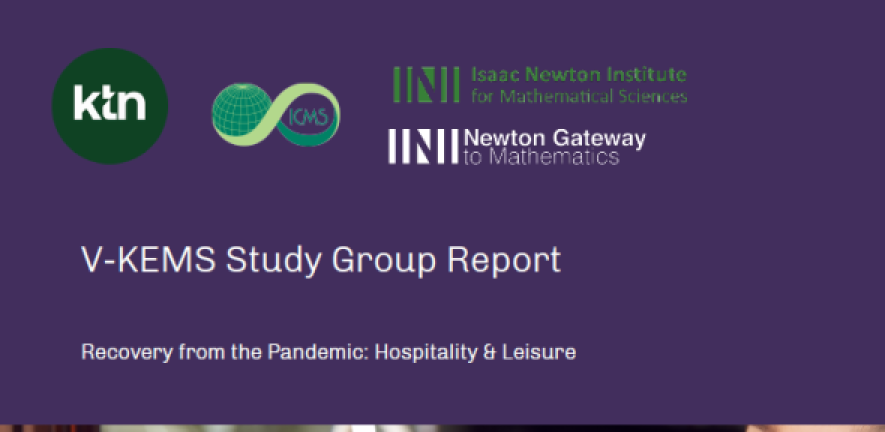
Submitted by clarem on 21st January 2022
This three-day virtual study group took place in October 2021 and was run by V-KEMS. It brought mathematical scientists and other disciplines together to solve challenges faced by the hospitality and leisure sector as a result of the COVID-19 pandemic.
A working paper is published below, which highlights the discussions that took place at the Study Group and the initial findings.
Background
The UK leisure industry as a whole has met some unprecedented challenges over the course of the pandemic, and will continue to do so as the nation recovers. We are interested in using mathematics as a tool to help solve the particular challenges hotels, restaurants and leisure facilities, such as cinemas, theatres and gyms, are facing as a result of the pandemic.
Unlike in previous study groups where the main focus was on modelling the spread of the infection, the theme of this event was about recovery from the pandemic with more of a focus on dealing with the operational difficulties and economic implications which have arisen.
Aims and Objectives
This event brought mathematical scientists and other disciplines together to solve end user defined challenges with the aim of mitigating the impact of COVID-19 on the hospitality and leisure sector.
With challenges presented by UK Hospitality, University of Cambridge Sports Centre, Royal Opera House, Shakespeare’s Globe and Independent Cinema Office, we worked with Indigo Ltd, a consultancy for the UK cultural sector and Traveltech for Scotland, who work closely with the Scottish tourism sector, amongst others to develop the problems that were tackled during the study group. In particular, the study group addressed the following three areas of concern:
- Ventilation of indoor facilities
- Audience/customer risk perception
- Scheduling/resource management
This event was of interest to those working in mathematical modelling, statistics, operations research, logistics and supply chain management as well as economics.

